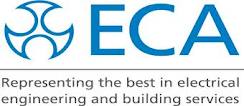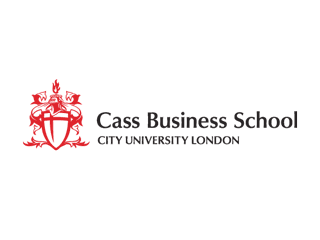
Showing all pages regarding experience.
A shocking waste of talent

More on the subject of women in senior management. The UK’s Institute of Leadership & Management (ILM) says that, according to its research published last week, there is a strong link between low confidence levels in women and their lack of career ambition compared to men. The Institute’s survey found that the career ambitions of women lagged behind their male colleagues and that over half of the women managers interviewed reported feelings of self doubt at work, compared with just 30% of men. Let’s consider this against the ongoing debate about female representation on Boards (and calls for quotas to address this) and another recent report by the London School of Economics (LSE). The LSE research identified a strong trend towards entrepreneurialism amongst women , reporting that 70% of women aged between 16 and 24 have ambitions to set up their own business.
These findings reflect my own experience both as someone who built a career in management to become a Chief Executive, and as a specialist in the global MBA market. Confidence amongst women at work is an issue. Women MBA graduates who are asked how they benefited from the qualification will invariably say that the experience gave them greater confidence in their abilities and more self esteem. I am also struck by the number of women who attribute their career success to the support they received from a great boss or someone in their past who gave them confidence and pushed them to go further. At the same time, annual surveys into the career choices of MBA graduates show an interesting increase in the number of women MBAs who are choosing self employment as a career. It might be possible to conclude from all this that women, lacking the confidence to compete with men in the corporate world, are opting out by establishing their own businesses and succeeding on their own terms. This is an over simplification – running your own business is not an easy option: it involves high risk, requires confidence, an appetite for success and a competitive nature. But given the consistently low numbers of female senior managers employed by companies and the under representation of females on Boards, it is not hard to understand why self employment is an attractive career path for many women.
This situation presents a serious problem for companies who are struggling to find talented people to fill top positions. We know that, with the retirement of baby boomers and a declining birth rate, the talent pool is shrinking. If female employees with potential to progress are not encouraged in their careers, or if women are simply leaving to go it alone, companies are losing an internal resource of skills, knowledge and expertise. A proactive talent management strategy which seeks to spot potential, nurture and encourage staff with promise, and which removes obstacles that might be preventing the advancement of women employees would go a long way to addressing these issues. It makes good business sense. Recruiting new staff from outside is costly, time consuming and risky. Investing in identifying and growing your own talent is likely to be a far more effective and efficient option.
Can leadership really be taught?

There appears to be an increase in cynicism about business education and qualifications, or those who argue that ‘real life’ work experience is of more value than management training. The myth that leaders are born not made is often perpetuated by ‘self-made’ business leaders who have achieved success without any formal qualifications and who claim to have worked their way to the top by sheer determination and an entrepreneurial spirit. These qualities, the cynics argue, are inherent – ‘you can’t teach leadership’.
” business education can’t change personalities, but it can help individuals to think and behave differently”
Well there is no denying that experience counts for a lot and that certain behavioural traits, such as confidence, intuition, creativity, and a positive attitude can all contribute to effective leadership. However, I would argue that, while business education can’t change personalities, it can help individuals to think and behave differently in management and leadership roles. But then the cynics go on to argue that it is not possible for the classroom to replicate the complexity of today’s global business environment. Business schools can teach the theory, they say, but formal education can’t prepare students for the reality of business which involves uncertainty, managing change, working across cultures, and managing people.
“the exercise taught the students something about collaboration, leadership, and what makes an effective team”
Having worked in business education for many years I take issue with the implication that business education is all theory and no practice. The best business schools in the world are offering high quality programmes which combine the teaching of theory with innovative approaches to developing skills and experience in a practical environment. Two weeks ago I was working with a group of seven new MBA students on a workshop designed to develop leadership skills, focusing particularly on team working. One exercise, which was filmed and played back to the group afterwards, involved a task where the group had to create products from materials according to a given specification, within budget and within a specified time frame. By the end of the exercise, the group having completed the task, watched the playback and discussed what happened, I had witnessed a noticeable change in the attitudes, behaviours and skills of the group members. Of course the changes were small, and I am not saying that one workshop can transform individuals into leaders. But there is no doubt that the exercise taught the students something about collaboration, leadership, and what makes an effective team. Not only that, each member of the group came from a different country (as is usual for MBA students). The nationalities represented were Greece, China, India, Iran, Russia, UK and the US. For the first time, these students experienced what it was like to work with people who spoke different languages, came from diverse cultural backgrounds, held different values and were used to different ways of working. The learning from this cross cultural team trying to work together to get a job done was extremely powerful.
So don’t tell me that education and qualifications have no value or that business courses can’t prepare students for the reality of business. Good programmes, involving a mix of teaching, coaching and practical assignments are arguably the best preparation for leadership. Business education alone can’t replace the benefits of real work experience, but it can enhance and complement that experience which, after all, is always going to be limited.
Dubai Student’s Dilemma

While working with a group of MBA students in Dubai this month one of the students, Mohammed, a 35 year old engineer from Bahrain, asked me for help with a problem he was facing at work. He had applied for promotion to a position which involved line management responsibilities. Mohammed’s company was apparently apprehensive about appointing him to this new role, not because he didn’t meet the requirements of the job, but because they didn’t want to lose him from his current position – he was working in a highly technical, high risk area of the business and there was no one else in the company who could do that job. Mohammed wanted some advice on how he could persuade his employers to release him from his current role. His approach to me triggered a number of thoughts. First, I sympathised with the sense of frustration Mohammed felt at effectively being too good at his job and too valuable in his current role to achieve promotion. How many employees with potential and ambition are simply not encouraged to put themselves forward for promotion because, to do so, would leave their employer with a recruitment problem? This tends to happen in areas where specialist, technical skills are scarce or where the wealth of knowledge and experience that one person has accumulated in a role is difficult to pass on and no thought has been given to succession or contingency planning. The implications here are clear. Companies that fail to ensure that skills and knowledge in an organisation are shared and communicated (even documented if necessary) are putting the organisation at risk. In addition, those companies that fail to encourage talented staff to develop and to take on new challenges are likely to lose their good people or, at the very least, their motivation and commitment to the company.
But I was also struck by Mohammed’s question to me for another reason. Here was a mature, experienced male with an engineering background who recognised that he needed some help and advice to overcome the problem he faced. He was being honest with me that he didn’t know what to do. Far too often I am dismayed at how unwilling some people are to ask for help and how many opportunities to get great advice and new ideas are passed up. The reasons are not clear – could it be because of pride or is it arrogance?. I have always found that, when facing a difficult business issue, there is normally someone around who is willing to help, give advice or offer a new perspective. Just ask! As for my advice to Mohammed – perhaps I’ll make that that the subject of a future blog!
Red tape in recruitment
My son, being one of the many unemployed at the moment, recently visited a number of local recruitment agencies to enquire about jobs and register for any suitable vacancies that came in. His experience of registering with these agencies illustrates just how dramatically things have changed in the world of recruitment. When I was his age, looking for work during the school or university holidays, I seem to remember that recruitment agencies (or were they called ‘Temping Agencies ’ then?) were relatively easy to deal with. You walk in, answer some questions and, if you are lucky, get sent off that same morning to your first job. The point is that, whether they could place you immediately or not, the process of registration with the agency took about half an hour at the most. Not so today, as my son can testify.
At one agency he was required to go in for half a day in order to complete the process of form-filling, identity checks and assessment. He had to take with him his passport, proof of address, proof of national insurance number and two new photos. Part of the process involved him being ‘CRB-checked’ (for which he was charged a fee) in the event of his being required to work with children. All his identity documents had to be verified, signed and photocopied by an agency staff member who was also required to check and send off his form to the Criminal Records Bureau for processing. One week later my son was asked to come in again with his passport – the CRB had rejected the copy of his passport for some reason and this had to be sent off again. Another two weeks passed and the agency called to say the CRB form had been returned because the agency staff had used Tippex in one box which apparently was not allowed. A new form had to be completed and resubmitted.
Two months later my son remains unemployed and he is wondering whether the time and effort involved in registering with just one recruitment agency was really worthwhile. The rationale for all these checks is clearly understood but surely we are going over the top here. I sympathise with the agency staff who have to spend so many hours dealing with this bureaucracy – I wonder at how they are able to justify the costs involved in performing endless checks when, in the current job market, agency placement fees must be declining.
Credentials
Jeanette has over 20 years experience in management and was Chief Executive of AMBA for 7 years. She has worked in both the commercial and public sectors. Having completed her MBA (with distinction) at the Cass Business School, Jeanette was asked to join the school’s academic team as a Visiting Lecturer in Organisational Behaviour. She still teaches postgraduate students at Cass, focusing on leadership and interpersonal skills development, and has contributed to the development of a series of skills development workshops at the business school.
She spent 15 years in the field of further and higher education working in the political arena, educational policy development, qualification and assessment frameworks and quality assurance systems. Prior to joining the Association of MBAs, Jeanette was Director of Education and Training for the Association of Accounting Technicians (AAT), the international professional association for accounting staff with over 100,000 members and 500 approved training institutions worldwide. In this role, she designed a range of new vocational qualifications in accountancy and led the development of UK standards of competence for accounting technicians.
Jeanette is an accomplished and regular speaker at international conferences and seminars on a range of topics including leadership in business, management education, accreditation and quality assurance in education and women in management.
Testimonials
“As Chief Executive of the Association of MBAs (AMBA), Jeanette had the courage and determination to tackle several challenges facing the Association in an increasingly competitive environment. Under her leadership the Association rapidly developed and established its international profile and reputation as the authority on MBA education and the most respected accreditation agency for MBA courses.”
Sir Paul Judge, President of the Association of MBAs
“Jeanette Purcell is refreshingly unpretentious. Her advice and support are built on the firm foundations of practical experience, knowledge and understanding. She listens to clients and stakeholders and builds on their strengths to deliver tailor-made, effective and sustainable solutions. “
Jane Scott Paul OBE, Chief Executive, Association of Accounting Technicians
“Jeanette has a very pragmatic approach to coaching which was both supportive and constructive for the person she worked with. She successfully supported a senior manager through some significant changes and we have been really pleased with the outcome of the work she undertook. She took the time to get to know the individual and constructively steered us to a positive outcome.”
Michelle Macadam, Head of Human Resources, Institute of Physics
“Jeanette’s approach has de-mystified the subject of networking for me. Practical tools and helpful tips have helped me to change my approach and develop a more focussed, quality network. As a result the business has benefited and I have created new opportunities for my own personal development.”
Dr Katherine Barclay, Director of Solid Dose Manufacturing and Compliance Operations, Pfizer
“The ICAEW identified a need to encourage staff across the organisation to raise their visibility and improve their business networking skills. We hired Jeanette Purcell Associates to deliver a one day training workshop on the topic and we were extremely pleased with the result. Jeanette’s approach is focused entirely on the client’s needs. She delivers training that is highly interactive and practical, ensuring that participants leave with a clear commitment to put their training into practice. The feedback from this workshop was excellent and we would not hesitate in using Jeanette Purcell Associates again.”
Elaine Mulholland, Training and Development Manager, Institute of Chartered Accountants in England and Wales (ICAEW)
Jeanette was a pleasure to work with. She is highly knowledgeable and passionate about sharing her insight with others. She developed tailor-made content for a series of webinars on ‘resilience’. With growing evidence to show that resilient people do better in exams, their careers and have greater levels of overall happiness, the webinars Jeanette provided aimed to give our audiences – students studying our business and finance qualification, or those thinking of doing so – the understanding (and importantly the practical tools) to help them become more resilient.
Suzanne Heath, Marketing Manager, Institute of Chartered Accountants in England and Wales (ICAEW)
My coaching sessions with Jeanette are already proving invaluable. In the first few sessions I’ve addressed and resolved an immediate relationship problem and made significant progress by being brave enough to share my long term aspirations. I am revelling in the opportunity the sessions provide to focus on me in an independent, supportive yet challenging environment and the discipline of having to feedback on progress at the next meeting really works for me.
Academic and Non-Exec professional, ICAEW (2015)
I have worked with Jeanette since 2013 while working in different roles and at different organisations. We have worked through a broad range of topics including developing strategy to deliver meaningful change, building my personal brand, managing people, presentation skills to name but a few. I find her coaching style and technique excellent and have been able to implement real change in the way that I work and deal with difficult and complex problems and situations. Jeanette creates a coaching programme bespoke to the individual and takes time to understand how you work, what your strengths and weaknesses are and how you learn and process information, so that she can find the tools and techniques that will work for you.
Claire Angus, Assistant Director, Development, Royal College of General Practitioners
My executive coaching sessions with Jeanette have been most valuable, following an initial 360 review (in 2014) highlighting key opportunities to work on, I have been able to improve big things like corporate planning and strategic networking and small things like time management. This cathartic experience has allowed me to become a calmer and more productive member of the executive management team at IndigoBlue. I really look forward to our sessions and value the wisdom and insight Jeanette provides when exploring challenging situations.
John Wright, Head of Public Sector Services, Indigo Blue Ltd
Jeanette has been an inspiration. I will forever be grateful for her guidance and kindness. I appreciate and treasure everything I have learnt from Jeanette’s coaching.
Zilah Skerritt, PA to Chief Executive, Tratos Ltd.
“Having known Jeanette for some years, she was a natural choice when it came to developing a higher skills framework for the building services engineering sector. She readily understood the brief and that, together with her approachability and integrity, inspired confidence and co-operation amongst the participants. The outcome has been an acknowledgement of the importance of developing higher management skills amongst key industry players and the establishment of a collaborative approach to doing so.”
Iain MacDonald, Head of Education and Training, Electrical Contractors’ Association (ECA)
“Marubeni, a Commodities Trading Company, appointed Jeanette Purcell to deliver a workshop for our 3 day European Training Event. Jeanette delivered a very interesting and interactive session. She is an excellent speaker, and demonstrated a high level of knowledge and expertise in this area. The feedback from participants was extremely good, and we would definitely consider inviting Jeanette to deliver future training workshops.”
Rebecca Kemp, Marubeni Human Resources
“I first met Jeanette in 2000 when she was a student on our MBA programme. She was an outstanding student and graduated with a distinction. After graduation she took up an executive role and subsequently was appointed as CEO of the Association of MBAs. For the last five years she has been a visiting lecturer at Cass during which time we have worked together to design and deliver developmental assessment centres and a range of leadership courses for our executive MBAs in both London and Dubai. She is a skilled professional coach and excellent course leader and I recommend her without reservation.”
Paul Dobson BSc PhD CPychol CSci AFBPsS, Cass Business School, City University London
“As a new, full-time working mother I wanted coaching from someone who understood my situation. Jeanette was able to give me first hand practical advice. She also helped me set out a strategy to develop my client base. I now feel more in control, and focussed on my real priorities both at work and at home.”
Nicola Tait, Client Advisor, Capital Asset Management
“I have had the pleasure of working together with Jeanette on an international Womens’ Leadership Development program for one of the leading global organizations in the Pharmaceutical sector. Jeanette demonstrated an excellent capability to work with a large group of people from different cultural backgrounds, the design of her workshops was simply perfect, very well adjusted to the needs of the client, both pertinent at an individual level and highly interactive. Jeanette has the rare capacity to make leadership development a pleasant and an enriching experience. I only hope we can do more work together.”
Marc Timmerman, Partner Axiom Consulting Partners, Managing Director Axiom Consulting Partners Benelux
“JPA undertook a piece of work for the National College for Leadership of Schools and Children’s Services. This provided a detailed analysis of national and international business school programmes for consideration within the design of an executive leadership programme for experienced Directors of Children’s Services. This work was delivered under very tight timescales, to cost, and proved highly valuable.”
Aidan Melling, Operational Director – Children’s Services, National College for Leadership of Schools and Children’s Services
“As an Associate of Make Life Easy, Jeanette has designed and delivered training for our clients by focusing on their needs, and taking time to understand the people, culture and challenges for the company. Drawing on her business experience, her workshops are interactive, practical and fun. Jeanette has the rare ability to engage even the most reluctant participants, sending them away with new insights, skills and ideas to implement immediately. Jeanette has received excellent feedback from work she has delivered for Make Life Easy and has undoubtedly made a positive difference to the clients she has worked with.”
Fiona Hindle, Founder of Make Life Easy Limited, www.makelifeeasy.co.uk
Business schools are in a competitive market – survival depends on quality
In the last 10 to 20 years the MBA qualification has grown in popularity and has become accessible to a much more diverse market of students from all over the world.
There is a view that the qualification’s remarkable success has in some way damaged the MBA’s status as the premier qualification in business and management. However, it is not growth in itself that threatens the MBA’s reputation, it is the variable quality of the huge numbers of courses on offer.
The MBA comes in for a lot of criticism as a qualification that has become a commodity, has lost its value and is irrelevant to modern business. Unfortunately such criticisms are out of touch with the positive developments that have taken place within the leading business schools in the last five years.
In fact, the MBA has gone through something of a transformation. Good business schools put effort into maintaining strong links with employers. These business schools are offering MBA programmes that are highly relevant , based on the most up to date thinking in business. Courses are practical – offering opportunities for students to try out new skills and knowledge in real business contexts. And the experience that comes from working alongside other students from a range of backgrounds and cultures is unique to the MBA.
However, as the MBA grows so do the number of new business schools that pay little attention to the quality and relevance of their courses. The number of MBA programmes that are not tested for quality and do not have accreditation is a matter of concern for employers and students. Choosing the right MBA course, which is going to bring a real return on your investment, has never been more difficult. Help is required to advise and support potential students when considering their options to ensure that they make the right choice of business school and management programme. At the same time, business schools need support to achieve innovative solutions to programme design and to demonstrate the quality standards that will differentiate their MBA courses from the thousands on offer.
Specialists in leadership and responsible management
JPA’s consultancy services are based on our experience and understanding of people, their development and their relationships in business, particularly during periods of significant change.
Our approach is based on the philosophy that effective human performance in business (including effective leadership) is achieved by a holistic approach to learning which combines knowledge, experience and skills. The opportunities for working on all three together are so often missed, each one being treated in isolation.
At JPA we look at integrated growth: using skills and experience, for example, to develop knowledge in a specific area. Our philosophy is to develop a more strategic approach to organisational development, focusing on initiatives that draw together and utilise all the components of the person, situation and company in order to really make a difference.
We believe it has proven not only to be a more effective, accelerated approach to staff development but also one that has greater equity for the long term.




























